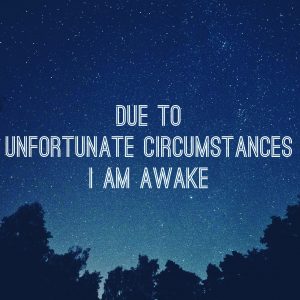 Getting the rest you need isn’t always easy. Sometimes your hormones make it difficult to get the shut eye required for your body to recover so you feel energized and ready to face your day.
Getting the rest you need isn’t always easy. Sometimes your hormones make it difficult to get the shut eye required for your body to recover so you feel energized and ready to face your day.
While you may not be in control of some of your age related hormone shifts that interrupt sleep, there are many things you can do to set yourself up for better rest.
Here are my top three tips…
- Do a Brain Dump
Is your head spinning with your ‘to do’ list? Are you ruminating over things that you did, need to get done, calls to make, emails to write, chores, errands, bills…on and on. I have anxiety just at the thought of it all.
One thing that’s especially helpful for me is to do a ‘brain dump’ an hour before bed. I have a note book with a task list that I fill in the night before each day. I put the most challenging tasks at the top that I tackle first thing in the morning. As I go through my day, anything that is ‘undone’ at the end of the day gets moved to the next day.
This brain dump allows me to relax and let go. Often times, I ruminate over things because, like you, I have so much going on, I fear I might forget something. Once the task gets put on paper, I’m confident I’ll get to it and I can relax.
Phew! The brain dump idea is an instant anxiety reliever for me which helps me settle into a more restful sleep.
- Keep Regular Hours
Sometimes I just hate to admit that some of my Mom’s advice is the very advice I give my kids and clients. She said, ‘The hours before midnight are more restful than those after midnight.’ What she was referring to is keeping regular hours, even on the weekends.
She always reminded me to get to bed before midnight on Friday’s and Saturday’s so that I didn’t sleep in until noon which would throw my schedule completely off.
(I must have listened to her because I can never once remember sleeping in past 10 am, even as a teenager.)
If you’re like most people, you probably have set times in the day that you need to get your day started. Hopefully you have a ‘regular’ bedtime during your week. Typically what happens is that your ‘regular hours’ get forgotten on the weekends.
You might stay up late and sleep in late and then Sunday night, when you know that alarm clock is set for Monday morning, you’re staring at the ceiling unable to sleep. This poor start to the week leads to feeling un-rested and results in more sleep deprivation all week.
It’s a vicious cycle.
It may not sound like a ton of fun, but keeping nearly the same hours during your week AND weekends will help you feel your best whatever day it is. As well, resist hitting the snooze button, oversleeping can actually make you feel more tired.
- Set the Scene for Sleep
Setting the scene for quality sleep is your guarantee to get at least some rest, even on the most difficult nights. Here are a few things to keep in mind:
Keep your room cool and dark – Light interferes with the sleep mechanism in your brain so that you may not get into the deeper, more restful levels of REM (rapid eye movement) sleep. Most people sleep best in 60-67F, a cool room signals the body to sleep since our body temperature naturally lowers during sleep.
Shut off electronics – Along with keeping your room dark, the blue light particularly from electronics is particularly harmful to sound rest. Try to power down iPhones, iPads, computers, TV etc 30-60 minutes prior to retiring.
Connect the dots between food and sleep – You may be sensitive to different foods that cause sleep disturbances. There are the obvious ones like caffeine, but things like wine or excess sugar can be a sleep disrupter as well. Connect the dots with quality sleep and exercise to see what helps you sleep well and what disturbs your rest.
Prioritize exercise – Consistent exercise will increase your energy levels during the day, improve your mood and improve quality of sleep at night. But, plan your workout earlier in the day, working out close to bed time, even within 3-4 hours can make it difficult to fall asleep.
Go to bed anyways – Even if you aren’t feeling tired, you’ll never fall asleep if you don’t give your body a chance. Relax with a bath or a book. Keep your schedule. Sleep will come if you let it.
Many of your sleep issues can be improved with lifestyle modifications. Be patient with yourself. Getting more anxious will not improve sleep quality. However, if after 21 days of really working on sleep hygiene with no improvement, it might be time to head to your doctor to see if something else is going on.
Meet me on Facebook in a free closed group exclusively for women 40+ here. You’ll find community, support and motivation as well as Facebook Live broadcasts, fun images and more.
If you need a done for you exercise plan that you can even do in your PJ’s, then I have you covered. You’ll love the brevity and convenience of these follow along workouts that will target your menopause belly.




